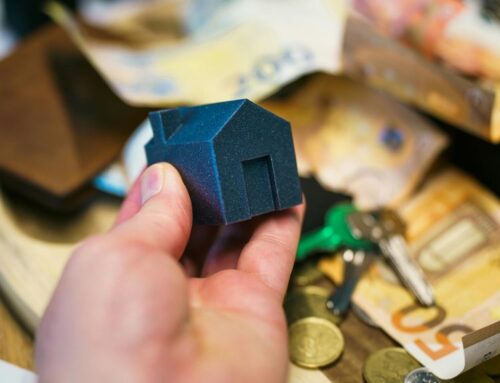Have you ever wondered how a cash home sale can streamline the selling process? It’s not just about quick transactions; it involves a series of strategic steps that can make or break your sale. From preparing your home to evaluating offers, each phase is vital. So, how do you guarantee you’re making the right choices every step of the way? Let’s explore the essential steps involved in this efficient selling method.
Key Takeaways
- Prepare your home for sale by decluttering, cleaning, and making necessary repairs to enhance its appeal.
- Set a competitive price by researching comparable homes and considering your home’s condition and unique features.
- Market your property effectively using professional photography, compelling descriptions, and social media to attract cash buyers.
- Evaluate cash offers by assessing the amount, verifying the buyer’s financial credibility, and considering the benefits of a quick closing.
- Gather necessary documents and communicate with the buyer’s representative to ensure a smooth closing process.
Understanding the Benefits of Selling for Cash
When you sell your home for cash, you can often bypass the lengthy and stressful traditional selling process, which can be a huge relief. You’ll enjoy a faster closing, often within days instead of months, allowing you to move on quickly. Plus, you won’t have to make costly repairs or renovations, as cash buyers typically purchase homes as-is. This means fewer expenses and less hassle. Additionally, cash sales reduce the risk of financing issues that can derail your deal. Overall, selling for cash provides a straightforward, efficient option, letting you focus on your next chapter without the usual complications.
Preparing Your Home for Sale
When you’re getting ready to sell your home, it’s essential to create a welcoming environment for potential buyers. Start by decluttering and cleaning your space, then tackle any necessary repairs to guarantee everything’s in good shape. Don’t forget to enhance your curb appeal—it’s the first impression that counts!
Declutter and Clean Space
Preparing your home for sale starts with one essential step: decluttering and cleaning your space. Begin by removing personal items, excess furniture, and knick-knacks to create a more inviting atmosphere. This helps potential buyers envision themselves in the home. Next, focus on cleaning every corner, from dusting surfaces to scrubbing floors. Pay special attention to kitchens and bathrooms, as they can make or break a sale. A fresh, tidy space not only looks appealing but also gives the impression of a well-maintained home. You want buyers to feel comfortable and excited, so make your space shine!
Make Necessary Repairs
Addressing necessary repairs is essential to ensuring your home makes a great impression on potential buyers. Take a close look at your property and identify any issues, like leaky faucets, chipped paint, or worn-out flooring. Fixing these problems not only boosts your home’s appeal but also shows buyers that you’ve maintained the property well. Don’t overlook minor repairs; they can greatly impact a buyer’s perception. If you’re not handy, consider hiring a professional to tackle the repairs efficiently. Investing time and effort into these fixes can lead to a smoother sale and potentially a higher cash offer for your home.
Enhance Curb Appeal
Curb appeal is your home’s first impression, and you want it to be a good one. Start by sprucing up your landscaping—mow the lawn, trim the bushes, and plant colorful flowers. Fresh paint on the front door can also make a big impact. Don’t forget to clean your windows and make sure your house number is visible. Consider power washing the exterior to remove dirt and grime. Finally, declutter your porch and entryway to create an inviting atmosphere. These simple enhancements can attract potential buyers and increase your chances of a quick, successful cash sale.
Setting the Right Price
Determining the right price for your home is essential in the cash sale process. You’ll want to research comparable homes in your area, taking note of their selling prices and features. This gives you a good idea of your home’s market value. Don’t forget to take into account your home’s condition, upgrades, and any unique features that may add value. Setting a competitive price can attract serious cash buyers quickly. Remember, pricing too high might scare off buyers, while pricing too low could mean losing out on potential profit. Striking the right balance is key to a successful sale.
Marketing Your Property
When it comes to marketing your property, effective listing strategies are key to attracting potential buyers. You’ll want to highlight your home’s best features and guarantee it stands out in a competitive market. Targeting the right audience can make all the difference in getting your home sold quickly and at a great price.
Effective Listing Strategies
One effective listing strategy is to highlight your property’s unique features in a way that grabs potential buyers’ attention. You want to showcase what makes your home stand out. Here are three ideas to enhance your listing:
- Professional Photography: Invest in high-quality images that capture your property’s best angles.
- Compelling Descriptions: Write engaging descriptions that evoke emotion and highlight key features, like a spacious kitchen or a beautiful garden.
- Virtual Tours: Offer virtual tours to give potential buyers a real feel for the space, making it more accessible and inviting.
These strategies can greatly boost your listing’s appeal!
Targeting Potential Buyers
How can you effectively target potential buyers for your home? Start by identifying your ideal buyer demographic—consider age, income, and lifestyle. Use social media platforms to showcase your property with high-quality photos and engaging descriptions. Create eye-catching online listings on real estate websites to expand your reach. Don’t forget about traditional marketing methods like flyers or open houses to attract local buyers. Networking with real estate agents can also help you connect with interested parties. Finally, make sure your home is staged well and priced competitively to draw in serious offers. These strategies will help you find the right buyer quickly.
Evaluating Cash Offers
What factors should you consider when evaluating cash offers for your home? First, assess the offer amount—ensure it aligns with your property’s market value. Second, look at the buyer’s financial credibility; a proof of funds letter can provide peace of mind. Finally, consider the closing timeline; cash deals often close faster, which might be advantageous for you.
Here’s a quick checklist:
- Offer Amount: Is it competitive?
- Financial Credibility: Does the buyer have proof of funds?
- Closing Timeline: Can you close quickly if needed?
Evaluate these to make an informed decision!
Navigating the Closing Process
Once you’ve accepted a cash offer, managing the closing process becomes your next priority. You’ll want to gather necessary documents, including your title deed and any disclosures. It’s crucial to communicate with the buyer’s representative to guarantee all paperwork is in order. Typically, a title company or attorney will handle the closing, so stay in touch for updates. Be prepared for a final walkthrough, which allows the buyer to confirm the property’s condition. If everything checks out, you’ll sign the closing documents, and the buyer will transfer funds. Just remember to stay organized and responsive throughout this important phase.
Finalizing the Sale and Transferring Ownership
After signing the closing documents, the final steps in the sale process involve transferring ownership to the buyer. You’ll want to make certain everything is in order for a smooth shift. Here are the key actions to take:
- Record the Deed: The signed deed must be filed with your local government to officially transfer ownership.
- Transfer Utilities: Notify utility companies to switch services into the buyer’s name, making sure there are no disruptions.
- Provide Keys and Documents: Hand over all keys, garage remotes, and important documents to the new owner.
Completing these steps will finalize your cash home sale successfully!
Frequently Asked Questions
How Quickly Can I Close a Cash Sale?
You can close a cash sale in as little as a week, depending on the buyer’s readiness and any necessary inspections. It’s often faster than traditional sales since there’s no mortgage approval process involved.
Are There Any Fees Associated With Cash Sales?
Isn’t it ironic? You think cash sales mean no fees. Unfortunately, there might still be costs like closing fees or transfer taxes. Always check with your buyer to understand any potential fees that could arise.
Can I Still Negotiate if I Receive a Cash Offer?
Yes, you can still negotiate even with a cash offer. Just because it’s cash doesn’t mean you have to accept the first proposal. Consider your priorities and don’t hesitate to discuss terms that work for you.
What Documents Do I Need for a Cash Sale?
You might think cash sales are simpler, but you’ll need key documents. Gather your title deed, proof of identity, any lien releases, and a bill of sale to guarantee a smooth transaction.
Will I Pay Taxes on a Cash Sale Profit?
Yes, you might pay taxes on profit from a cash sale, depending on your situation. Capital gains tax could apply if you sold the property for more than you bought it. Consult a tax professional for specifics.
Conclusion
In summary, selling your home for cash can streamline the process, making it quicker and less stressful. Did you know that cash sales accounted for about 23% of all home sales in 2022? By following the outlined steps—from preparing your home to finalizing the sale—you can take advantage of this growing trend. With careful planning and the right approach, you can successfully navigate your cash home sale and shift to your next chapter seamlessly.
Call us today.











